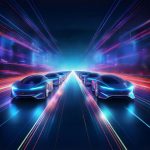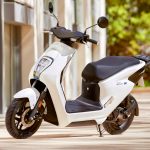As cars become more automated, they generate massive amounts of data – but with that comes security risks that pose a formidable challenge to automakers.
Quantum computers could help address many of these challenges. According to Singh, quantum computing can be especially useful for complex optimisation, which could assist with designing software defined vehicle (SDV) architectures.
Quantum Simulations
Volkswagen researchers have developed a quantum-analog simulator to model drive cycles. Their results show that these simulators can accurately depict pure quantum mechanical behavior (Fig 4).
Quantum simulations allow scientists to study quantum systems using computer programs. These simulations are utilized by scientists for studying an array of scientific problems related to high energy physics, nuclear physics, condensed matter physics and even cosmology.
Traditional computer simulations can be computationally intensive, taking time proportional to the number of particles being studied. Quantum devices handle these operations natively and efficiently allowing us to access results otherwise inaccessible without resorting to massive number crunching. Achieving these results requires efficient methods for simulating Hamiltonian evolution within open quantum systems.
Quantum Machine Learning
Autonomous driving vehicles depend on artificial intelligence-based systems to perform numerous functions, including traffic simulation, road mapping and routing, and pedestrian behavior prediction. Such tasks require intensive computing efforts that make quantum systems an excellent solution.
QML takes advantage of quantum parallelism and entanglement principles to achieve exponential speedups over traditional models, allowing it to handle complex optimization problems more efficiently than traditional machine learning algorithms, outperforming them even in areas like pattern recognition.
Recently, for instance, quantum cognition and decision theory was utilized to analyze human traffic participants’ behaviors and interactions; it revealed that most human behavior is irrational. This new approach can provide greater insight into human psychology while increasing accuracy of pedestrian crossing trajectory prediction.
Quantum-Secure Algorithms
Quantum computing poses a threat to the security mechanisms that safeguard digital systems such as cars. One of the primary obstacles lies in developing quantum-safe algorithms.
Solution: Cryptographic algorithms using combinations of factors to generate unique secret keys based on mathematical problems even quantum computers would struggle to solve provide the solution.
NIST has selected four algorithms it believes can withstand attacks by quantum computers and is working towards standardizing them. Draft standards have already been issued for CRYSTALS-KYBER, CRYSTALS-DILITHIUM, and SPHINCS+ while FIPS publication of FALCON should occur by 2024.
Migration to quantum-safe algorithms will take years, with some industries — like automotive and finance — needing to start earlier due to long technology lifecycles or long-term data sets. When that is the case, an agile approach to quantum defense may be beneficial.
Quantum Batteries for Electric Vehicles
As the automotive industry transitions toward fully electric vehicles (EVs), quantum technology could play a critical role. Not only could it enable greater energy storage capacity but it could also significantly speed up charging times – giving manufacturers and their clients greater peace of mind and reliability.
Scientists at Korea’s Institute of Basic Science have made an unexpected discovery: using quantum resources such as entanglement could allow for faster battery charging mechanisms than those offered by traditional batteries, which charge each cell individually. Quantum batteries charge them collectively.
Researchers used the Quantinuum InQuanto quantum chemistry platform and H-series ion-trap quantum hardware for their calculations. This hybrid approach allowed quantum computers to run extremely accurate simulations of real molecules without using massive computing power; thereby making quantum computing suitable for investigating battery research such as charge/discharge mechanisms, electrochemical stability, thermal stability and structural phase transitions.
Quantum Communication
As quantum technology remains in its infancy, automotive companies are taking tentative steps towards adopting it. Volkswagen, for instance, is working with Google and Canadian company D-wave in order to utilize quantum computing in order to reduce traffic congestion with data collected from cars as they drive around.
Quantum communication makes this possible by employing qubits with their two partners to send information. A measurement on one of the qubits partially collapses its superposition state so that its partner knows in which state it resides.
This can be immensely useful when applied to automotive problems, such as optimizing battery cell structures in electric vehicles (EVs), route and logistics planning in megacities, and developing new machine learning processes.











